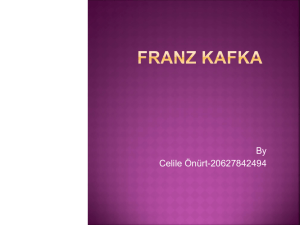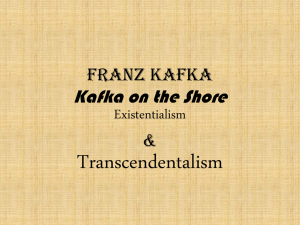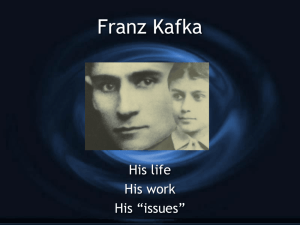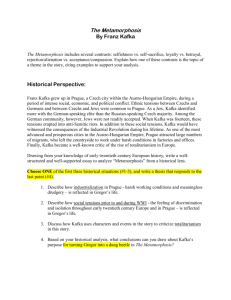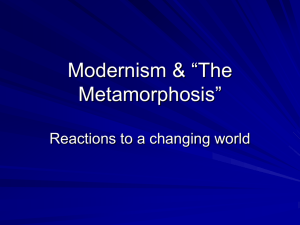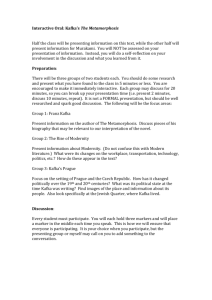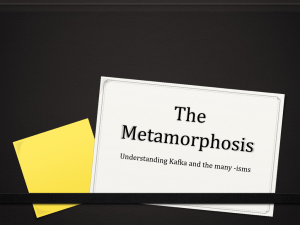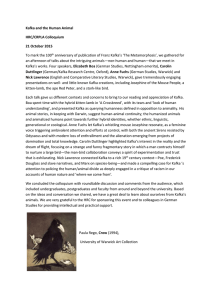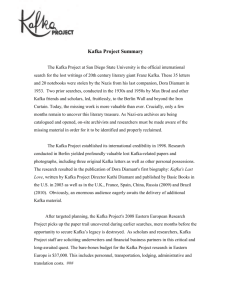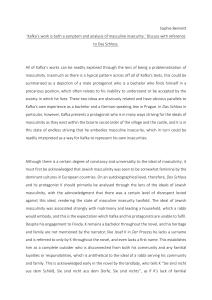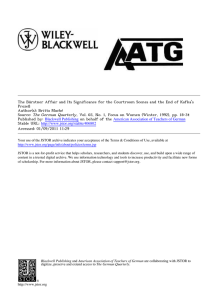Die Verwandlung
advertisement
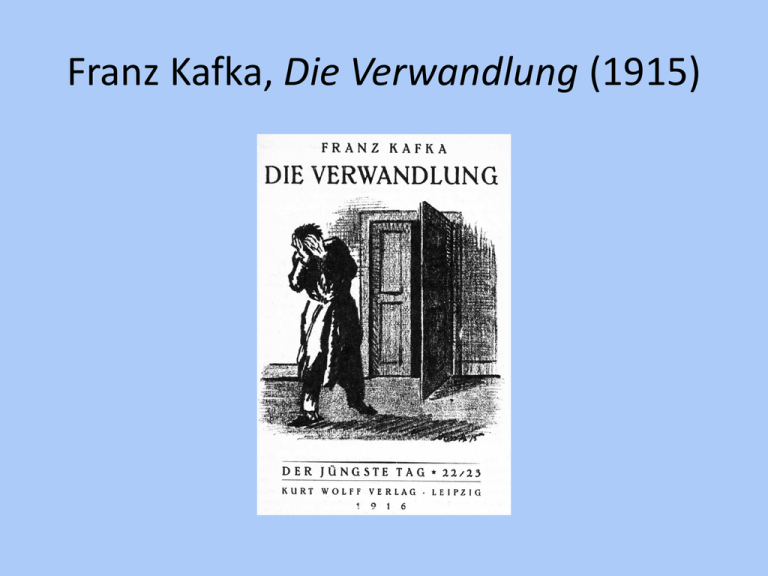
Franz Kafka, Die Verwandlung (1915) Franz Kafka (1883-1924) Biography • Born in Prague (Austro-Hungarian Monarchy) • Czech-Jewish origin • German-speaking Czech Jew Hermann Kafka, Julie Löwy Austro-Hungarian Empire (1867-1918) Biography • Studied Law (doctorate 1906) • Worked in insurance • Wrote literary texts in spare time • Literary circle in Prague (Max Brod, Felix Weltsch) Biography • Engaged several times • Never married • Tuberculosis diagnosed, 1917 • Death near Vienna, 1924 Kafka as writer • Great name of literary modernism (Marcel Proust, James Joyce, Virginia Woolf) • Short stories, novellas, novels • Experimental prose style (“personales Erzählen”) Kafka as writer • Tendency towards the fantastic / supernatural • Motif of metamorphosis: fairytale motif • Human / animal theme • Strangeness, alienation, grotesquerie Kafka as writer • Relatively unknown during his lifetime • Posthumous fame (Max Brod; American and English reception) • “kafkaesque” Themes • Crisis of (masculine) identity in modernity • The passing of religion / tradition • The search for meaning • The body / sexuality Themes • Critique of capitalism • Critique of bourgeois family • Critique of patriarchal power structures Oedpius complex • Power struggle between father and son – Das Urteil (1912) – Die Verwandlung (1915) – Brief an den Vater (1919) Hermann Kafka (1852-1931) Sigmund Freud: Oedipus complex • Desire for the parent of the opposite sex (son for mother) • Universal developmental stage for all male children (ages 3-6) • Successful resolution of complex results in identification with same-sex parent Oedipus complex • If unresolved – neurosis, “arrested development” • Fixation on the father • Ongoing power struggle Die Verwandlung • Father / son (oedipal) struggle? • Father fixation? Mother fixation? Sister fixation? • Son as eternal loser in the oedipal conflict? Masochism • Gregor as masochist? • Masochism as sign of the son’s defeat in oedipal conflict? • Family – esp. sister – as sadists?
